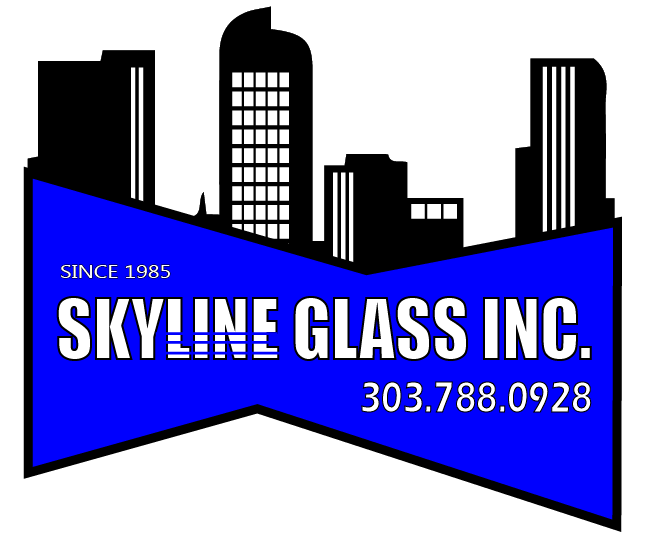Frequently Asked Questions
Do you work with individual home owners?
Skyline Glass is a commercial glazing subcontractor working directly with contractors, business owners and architects. Typically, we do not work with home owners to replace glass windows or cut glass for individual home owner needs.
What is Laminated glass?
Laminated glass is a form of Safety Glass that is manufactured by sandwiching a layer of Polyvinyl Butyral (PVB) between two pieces of glass. It then goes through a heating and pressure process in an autoclave to firmly adhere the glass to the innerlayer. If broken, the glass is held together by the innerlayer and provides a high level of both safety and security.
What is Tempered glass?
Tempered glass is a form of Safety Glass that is manufactured by heating flat glass to approach its softening temperature and suddenly chilling with jets of cold air, which distributes compression stress on the glass surfaces while tensile stress in the center. The counteraction of compression stress and tensile stress provides tempered glass up to 5 times the strength of normal glass. When broken, tempered glass forms oblique bean size granules to reduce damage to human bodies. Tempered glass also withstands quick temperature changes.
What are dual pane / insulated units?
Most new construction utilizes dual pane or insulated windows. Dual pane windows are composed of 2 pieces of glass joined by a spacer, which creates an “air-space” between the two panes. It’s this air-space that creates the insulating properties that makes these units so energy efficient. The size of the air-space determines for the most part how efficient the window will be. Other factors like “Low-E” or tinted glass can also increase efficiency.
Do I have to replace both pieces if only 1 side of the dual pane window broke?
Dual pane windows are manufactured as airtight units that are able to resist fogging due to a material in the spacer called desiccant. When either the inner or outer piece of glass breaks, the desiccant becomes saturated and ineffective which requires replacement of the whole unit. Although insulated units are more expensive to replace than single pane windows, the benefits far outweigh the costs. Besides the obvious energy savings benefits, insulated units also provide some important security benefits. Usually when a dual pane window breaks, one side stays in tact keeping air conditioning or heat from escaping. Unlike single pane windows, it also keeps your business secure until the new window can be installed.
What is Low-E and what does it to for my windows?
Low-E stands for Low-Emittance. Low-E coatings are microscopically thin, virtually invisible, metal or metallic oxide layers deposited on a window glazing surface primarily to reduce the U-factor by suppressing radiative heat flow. By purchasing windows with a low-e coating you can allow all the light into your business without all the heat that goes along with it.
Why do I have to replace my broken door glass with safety glass if that’s not what was in it originally?
For your safety, doors with standard annealed glass have been responsible for countless severe injuries and even deaths. In 1972, the Uniform Building Code mandated that all doors be glazed with safety glass. The code goes so far as to say that if one of the doors has to be re-glazed for any reason, the other door must be re-glazed as well if it does not contain safety glass in order to bring it up to code. All licensed contractors must abide by this code or face stiff penalties and possible loss of their license.
